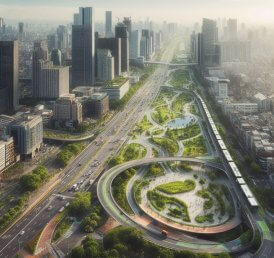À la mode Administration – The interrelationship between Public administration and Mass media

By Syed Irtaza Ali
With the world becoming hypercomplex, Administrative efficiency becomes a necessity, and in order to deliver satisfactory results, it has to be well-equipped with the relevant resources and particulars. In the modern era, the administration is an important element of any country and society. District Management should be able to pin down its strengths and weaknesses in today’s competitive world. Under this manifestation comes the role of media, by incorporating public and private interests and spreading developmental issues.
No matter how hardworking, qualified, or honest administrator you are, you will always come face to face with these multi-tiered processes, widely labeled as “red-tape.” Often observed is the structure and activities of civil administration kept in the grey from the fear of accountability, but if we have to progress, Media platforms have to turn to account their performances and develop their records.
Information is a vital source to achieve empirical, technological, and cultural progress in any society. While all the initiatives and programs are for the people, it is equally important to get their cooperation, feedback, and responses to that development scheme. We aim to narrow down the gap between Public Administration and Public relations by this mass media modeling.
Jin (2013) stated that citizens’ participation, trust, and environmental understanding significantly affect urban bodies’ legitimacy, and citizens prefer municipal bodies undertake urban affairs rather than the central government i. In addition to transport, public litigation, environment, and planning, city management is one of the most prominent factors that have a growing and decisive impact on basic urban components.
Just like the palpable excitement among the early adopters of e-government was spotted, public administrators have also jumped into various social media platforms for engagement and communicative purposes. In conversation with Deputy Commissioner Islamabad, Hamza Shafaqat, He broadly acknowledged Social Media’s contribution in Accurate information of real functions through audio and visuals, which can be very useful for policymakers and planners provided that they are well versed with the potential powers of mass media. In a developing country like Pakistan, such modern communication techniques could play a crucial role.
Speaking highly of Media leads us to the downside of it. It does not deny the fact that it acts as a mediator between people and administration; however, bad political intention and conservative approaches are those variables that act as a deterrent. Since Public administration deals with administrative departments’ activities, its policy accomplishments, and the relationship of people with officials, the context of mass media might overshadow the administrative effort and may well be used for propaganda purposes.
For this reason, they should define their working boundaries and critically examine whether objectives of development are directly correlated to the needs of those areas for which they are formed. Are the policies reaching the target audience? Are the people up to date with their usual progress and satisfied with their performances? These are some of those areas that media should target while assisting the administrative task force.
Administrative authorities consequently should prepare promotional and awareness programs with the help of mass media in various issues such as pros of active citizens’ engagement in the city, attention to entrepreneurship and job opportunities by citizens, traffic laws, administrative corruption in organizations, social justice, food and healthy lifestyle, physical and mental health, disadvantages of smoking, advantages of tax payment and information on tax breaks, suggesting the recreational, sports, educational, religious, medical places by donors, air pollution, environmental protection, and its harms as top priorities.
—————
The writer is a final year student of BSc (Honors) in Economics at the Lahore University of Management Sciences (LUMS).
i Jin, M. (2013). Citizen participation, trust, and literacy on government legitimacy: the case of environmental governance. Journal of Social Change, 5(1), 2.



